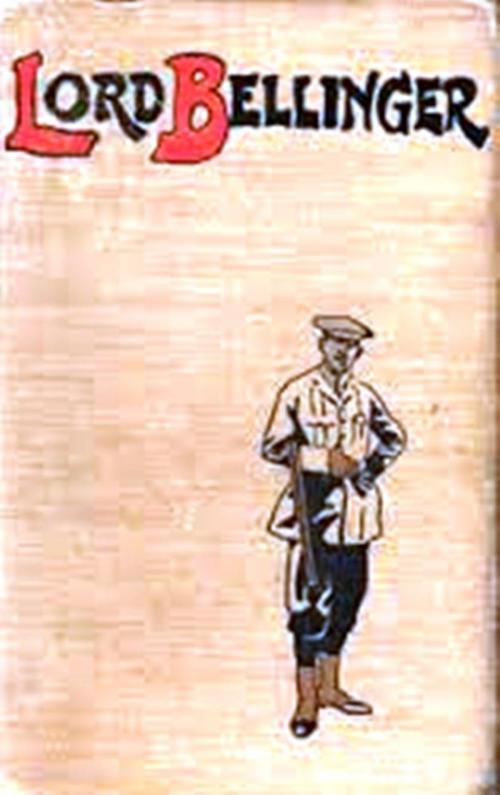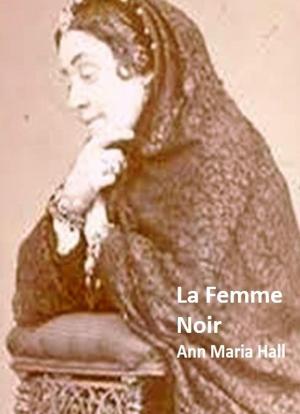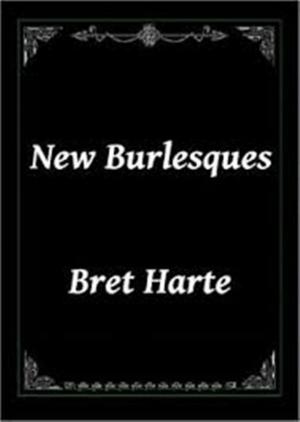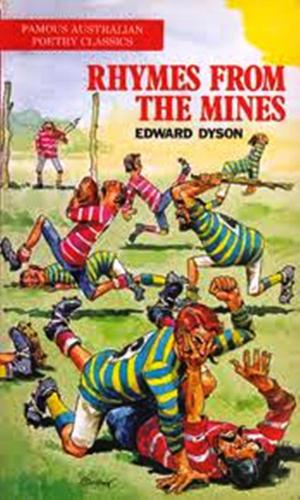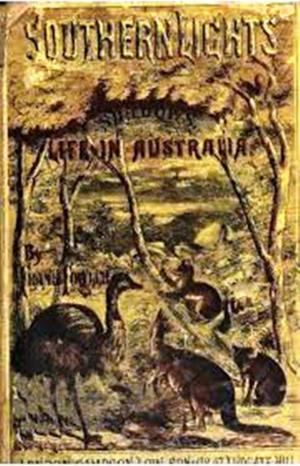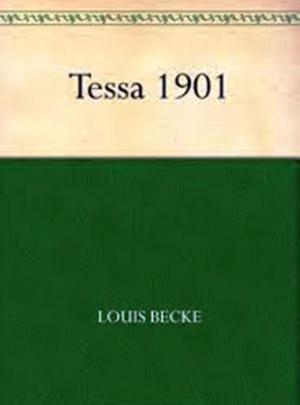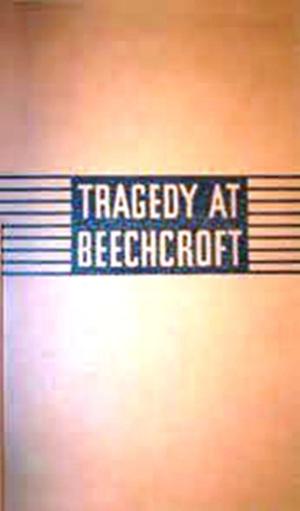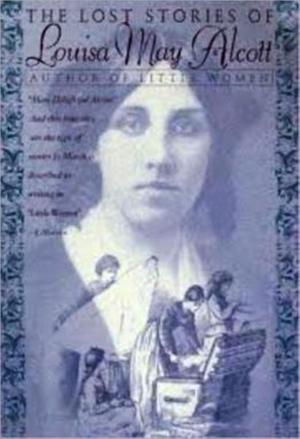| Author: | Harry Graham | ISBN: | 1230000193853 |
| Publisher: | WDS Publishing | Publication: | November 2, 2013 |
| Imprint: | Language: | English |
| Author: | Harry Graham |
| ISBN: | 1230000193853 |
| Publisher: | WDS Publishing |
| Publication: | November 2, 2013 |
| Imprint: | |
| Language: | English |
In this age of literary self-analysis a volume of autobiographical
memoirs needs neither explanation nor apology. But a short time has
elapsed since Mr. George Bernard Shaw heralded the advent in the world of
letters of a Super-tramp whose gift of prosody has already brought him a
well-earned meed of fame. Soon afterwards, Mr. H. G. Wells, not to be
outdone, acted as sponsor to a literary bath-chairman whose biographical
revelations caused a temporary stir in the peaceful backwaters of the
Circulating Libraries. The popular appreciation accorded to the
discoveries of Mr. Shaw and Mr. Wells supplies adequate proof of the
interest which the British public will always take in personal
reminiscences that are written with simplicity, sincerity and a complete
lack of reserve. That this interest is not confined to the writings of
vagrants and casuals may be gathered from the continuous publication of
those absorbing volumes of memoirs which it is the habit of modern ladies
of title to compile in their leisure moments. It is not too much to hope
that this fashion of self-revelation, which exposes the most intimate
details of domestic life to the gaze of the public, may soon become
universal.
The House of Lords has but recently been the centre of a controversy
unique in its violence and bitterness. This may therefore be considered a
singularly appropriate moment for the publication of an autobiography
written by one who may be rightly regarded as a thoroughly typical member
of that august and much maligned assembly. It was originally intended
that this autobiography should be published anonymously. Indeed, Lord
Bellinger was at one time anxious that its publication should be deferred
until some time after his decease. He doubtless realised that his candid
criticism of many of his nearest and dearest might prove unpalatable to
thin-skinned or sensitive relations, and, being himself a man of an
exceptionally tender heart, was naturally loth to hurt the feelings of
his friends, at any rate during his own lifetime. Circumstances have,
however, arisen which render it possible to publish the memoirs without
further delay, and it is to be hoped that their appearance will cause but
little pain to those of Lord Bellinger's acquaintance who may recognise
their own portraits in these pages. (It may save trouble if I state that
Mr. Bridgitt, of the firm of Bridgitt, Bridgitt and Venable, Lord
Bellinger's family solicitors, has submitted the MS. to the consideration
of a legal expert who has pronounced the satisfactory opinion that
although certain passages might possibly be criticised as being in
execrable taste, there is nothing libellous or actionable in the book.)
The winter of 1910 will always be notable as a period of intense and
exceptional political stress. It culminated, as will no doubt be
remembered, in a Constitutional crisis of unparalleled importance in the
annals of English history. In November, we may recall, the House of Lords
nobly responded to the demands of a clamorous Democracy. That passion for
self-improvement which had been slumbering for so many centuries, almost
unnoticed, in the bosoms of the Peerage, burst forth into sudden flame.
Within the brief space of a single week the Lords, with a celerity which
evoked the admiration and wonder of the whole civilized world, resolved
upon the adoption of a number of the most drastic measures of internal
reform, involving the sacrifice of that hereditary principle upon which
their whole existence had so long depended. The sudden passionate desire
to amend its constitution, displayed by the Upper Chamber during those
momentous days of November, shamed even the bitterest opponents into
silence, and it was universally admitted that men who were thus prepared
to relinquish at a moment's notice all the rights and privileges for
which their forefathers had bled and paid, for such countless
generations, must be moved by no ordinary spirit of disinterested
patriotism and self-sacrifice.
It cannot, however, be denied that among the many Peers who were thus
called upon to immolate themselves upon the altar of their Empire and
their Party were a certain number of strenuous souls who viewed the idea
of renouncing their legislative birthright with extreme reluctance. Of
these perhaps the most prominent was Lord Bellinger. He was away hunting
in Leicestershire when the news was brought to him of the surrender of
that hereditary principle which he had always regarded as the salvation
of England. He was not therefore able to take any personal part in the
debate upon his leader's startling reformatory resolutions until a week
later, when there was a hard frost. He did not remain idle, however, but
spent nearly the whole of one Sunday morning composing a masterly letter
to the _Morning Post_ in which he explained at some length the danger
that would threaten England and the Empire if men like himself were no
longer qualified to take part in the deliberations of the Upper Chamber.
"It will be a deplorable day for this country," he wrote, "when the
possession of large estates, often held by the same family for two or
more generations, shall no longer entitle land-owners to play the
principal part in the government of these islands. It will be a sad day
for the Empire when the aristocracy of birth and wealth shall cease to
represent themselves in our Imperial Senate, and the composition of the
Second Chamber is restricted to individuals whose only qualifications
consist of some fortuitous intellectual eminence, or mere personal
merit."
Lord Bellinger's protests, alas! fell upon deaf ears, and when he
discovered that he himself could not hope to find a seat in any House of
Lords constituted upon lines so narrow and democratic as those
foreshadowed by the leaders of the so-called Reform Movement, he very
rightly determined that his country should be punished for her
ingratitude, and, after selling his English property and disposing of
Bellinger House, Mayfair, bade farewell to the land which (as he bitterly
declared) seemed to have no further use for his services.
Bellinger Hall became the property of Mr. Wilbur P. Balch, familiarly
known in Chicago as the Chew-gum King, while Lord Bellinger's London
residence was acquired by a Limited Entertainment Company which proposes
to convert it into an Electric Palace and Skating Rink.
During his brief colonial tour, which he describes in these memoirs, Lord
Bellinger had been greatly attracted by the climate and scenery of
Western Canada. When therefore he decided to cut himself adrift of all
his old associations he took steps to purchase a large tract of land in
British Columbia, and, after shaking the dust of England off his feet,
emigrated to Vancouver, at the commencement of this year, taking his wife
and infant daughter with him. Before leaving he handed me a packet
containing this autobiographical sketch, and informed me that I was at
liberty to publish it whenever I felt disposed to do so. It had been
completed some months before the occurrence of that Constitutional crisis
which was the immediate cause of his emigration, and terminates therefore
upon a suitably optimistic note.
My own share in the production of this work is of the slightest, but
should perhaps be made clear. As was becoming in a man of his social
position, Lord Bellinger enjoyed the privilege of a public-school
education, and was afterwards brought up in a fashion suited to one
destined from birth to undertake the responsibilities of hereditary
statesmanship. He would therefore have been the last man in the world to
claim the possession of any literary skill or pretend that he had
anything but the most rudimentary acquaintance with the intricacies of
grammar, style or punctuation. He was rightly content to leave such minor
matters to less fortunate persons who, like myself, have been compelled
by circumstances to study the laws of syntax and composition. As the
editor of his memoirs it has been my pleasant duty to rewrite most of the
original manuscript which the distinguished author had dictated somewhat
hurriedly to his typewriter. And so, although the matter is invariably
Lord Bellinger's, the manner is generally my own.
With these brief words of introduction my task comes to an end, and I
will leave Lord Bellinger to tell his own story and trace the development
of his own character by a simple portrayal of the numerous events of
interest that have combined to form the groundwork of his successful
career as a soldier and (until recently) a statesman.
In this age of literary self-analysis a volume of autobiographical
memoirs needs neither explanation nor apology. But a short time has
elapsed since Mr. George Bernard Shaw heralded the advent in the world of
letters of a Super-tramp whose gift of prosody has already brought him a
well-earned meed of fame. Soon afterwards, Mr. H. G. Wells, not to be
outdone, acted as sponsor to a literary bath-chairman whose biographical
revelations caused a temporary stir in the peaceful backwaters of the
Circulating Libraries. The popular appreciation accorded to the
discoveries of Mr. Shaw and Mr. Wells supplies adequate proof of the
interest which the British public will always take in personal
reminiscences that are written with simplicity, sincerity and a complete
lack of reserve. That this interest is not confined to the writings of
vagrants and casuals may be gathered from the continuous publication of
those absorbing volumes of memoirs which it is the habit of modern ladies
of title to compile in their leisure moments. It is not too much to hope
that this fashion of self-revelation, which exposes the most intimate
details of domestic life to the gaze of the public, may soon become
universal.
The House of Lords has but recently been the centre of a controversy
unique in its violence and bitterness. This may therefore be considered a
singularly appropriate moment for the publication of an autobiography
written by one who may be rightly regarded as a thoroughly typical member
of that august and much maligned assembly. It was originally intended
that this autobiography should be published anonymously. Indeed, Lord
Bellinger was at one time anxious that its publication should be deferred
until some time after his decease. He doubtless realised that his candid
criticism of many of his nearest and dearest might prove unpalatable to
thin-skinned or sensitive relations, and, being himself a man of an
exceptionally tender heart, was naturally loth to hurt the feelings of
his friends, at any rate during his own lifetime. Circumstances have,
however, arisen which render it possible to publish the memoirs without
further delay, and it is to be hoped that their appearance will cause but
little pain to those of Lord Bellinger's acquaintance who may recognise
their own portraits in these pages. (It may save trouble if I state that
Mr. Bridgitt, of the firm of Bridgitt, Bridgitt and Venable, Lord
Bellinger's family solicitors, has submitted the MS. to the consideration
of a legal expert who has pronounced the satisfactory opinion that
although certain passages might possibly be criticised as being in
execrable taste, there is nothing libellous or actionable in the book.)
The winter of 1910 will always be notable as a period of intense and
exceptional political stress. It culminated, as will no doubt be
remembered, in a Constitutional crisis of unparalleled importance in the
annals of English history. In November, we may recall, the House of Lords
nobly responded to the demands of a clamorous Democracy. That passion for
self-improvement which had been slumbering for so many centuries, almost
unnoticed, in the bosoms of the Peerage, burst forth into sudden flame.
Within the brief space of a single week the Lords, with a celerity which
evoked the admiration and wonder of the whole civilized world, resolved
upon the adoption of a number of the most drastic measures of internal
reform, involving the sacrifice of that hereditary principle upon which
their whole existence had so long depended. The sudden passionate desire
to amend its constitution, displayed by the Upper Chamber during those
momentous days of November, shamed even the bitterest opponents into
silence, and it was universally admitted that men who were thus prepared
to relinquish at a moment's notice all the rights and privileges for
which their forefathers had bled and paid, for such countless
generations, must be moved by no ordinary spirit of disinterested
patriotism and self-sacrifice.
It cannot, however, be denied that among the many Peers who were thus
called upon to immolate themselves upon the altar of their Empire and
their Party were a certain number of strenuous souls who viewed the idea
of renouncing their legislative birthright with extreme reluctance. Of
these perhaps the most prominent was Lord Bellinger. He was away hunting
in Leicestershire when the news was brought to him of the surrender of
that hereditary principle which he had always regarded as the salvation
of England. He was not therefore able to take any personal part in the
debate upon his leader's startling reformatory resolutions until a week
later, when there was a hard frost. He did not remain idle, however, but
spent nearly the whole of one Sunday morning composing a masterly letter
to the _Morning Post_ in which he explained at some length the danger
that would threaten England and the Empire if men like himself were no
longer qualified to take part in the deliberations of the Upper Chamber.
"It will be a deplorable day for this country," he wrote, "when the
possession of large estates, often held by the same family for two or
more generations, shall no longer entitle land-owners to play the
principal part in the government of these islands. It will be a sad day
for the Empire when the aristocracy of birth and wealth shall cease to
represent themselves in our Imperial Senate, and the composition of the
Second Chamber is restricted to individuals whose only qualifications
consist of some fortuitous intellectual eminence, or mere personal
merit."
Lord Bellinger's protests, alas! fell upon deaf ears, and when he
discovered that he himself could not hope to find a seat in any House of
Lords constituted upon lines so narrow and democratic as those
foreshadowed by the leaders of the so-called Reform Movement, he very
rightly determined that his country should be punished for her
ingratitude, and, after selling his English property and disposing of
Bellinger House, Mayfair, bade farewell to the land which (as he bitterly
declared) seemed to have no further use for his services.
Bellinger Hall became the property of Mr. Wilbur P. Balch, familiarly
known in Chicago as the Chew-gum King, while Lord Bellinger's London
residence was acquired by a Limited Entertainment Company which proposes
to convert it into an Electric Palace and Skating Rink.
During his brief colonial tour, which he describes in these memoirs, Lord
Bellinger had been greatly attracted by the climate and scenery of
Western Canada. When therefore he decided to cut himself adrift of all
his old associations he took steps to purchase a large tract of land in
British Columbia, and, after shaking the dust of England off his feet,
emigrated to Vancouver, at the commencement of this year, taking his wife
and infant daughter with him. Before leaving he handed me a packet
containing this autobiographical sketch, and informed me that I was at
liberty to publish it whenever I felt disposed to do so. It had been
completed some months before the occurrence of that Constitutional crisis
which was the immediate cause of his emigration, and terminates therefore
upon a suitably optimistic note.
My own share in the production of this work is of the slightest, but
should perhaps be made clear. As was becoming in a man of his social
position, Lord Bellinger enjoyed the privilege of a public-school
education, and was afterwards brought up in a fashion suited to one
destined from birth to undertake the responsibilities of hereditary
statesmanship. He would therefore have been the last man in the world to
claim the possession of any literary skill or pretend that he had
anything but the most rudimentary acquaintance with the intricacies of
grammar, style or punctuation. He was rightly content to leave such minor
matters to less fortunate persons who, like myself, have been compelled
by circumstances to study the laws of syntax and composition. As the
editor of his memoirs it has been my pleasant duty to rewrite most of the
original manuscript which the distinguished author had dictated somewhat
hurriedly to his typewriter. And so, although the matter is invariably
Lord Bellinger's, the manner is generally my own.
With these brief words of introduction my task comes to an end, and I
will leave Lord Bellinger to tell his own story and trace the development
of his own character by a simple portrayal of the numerous events of
interest that have combined to form the groundwork of his successful
career as a soldier and (until recently) a statesman.
